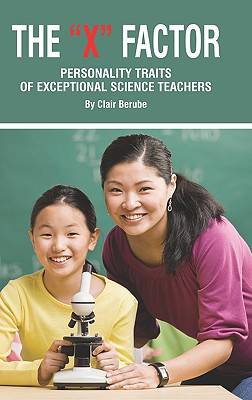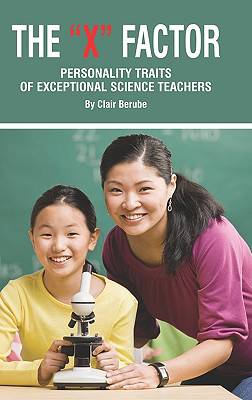
- Retrait gratuit dans votre magasin Club
- 7.000.000 titres dans notre catalogue
- Payer en toute sécurité
- Toujours un magasin près de chez vous
- Retrait gratuit dans votre magasin Club
- 7.000.0000 titres dans notre catalogue
- Payer en toute sécurité
- Toujours un magasin près de chez vous
Description
American science education is in trouble. As the United States continues to lag behind other nations in science achievement, the question is asked: how can we better get our students excited and inspired by science? This is the science teacher's duty. The irony of the education profession is that some of the most important aspects of it are the hardest to measure and replicate. The things that matter most can be the hardest to quantify. Some teachers can know the different learning styles, intelligences, and brain preferences of their students. They can know best practices of how to deliver instruction. They can do all these things and more, but still not convey imagination and passion for science to their students.
But some science teachers do inspire. These special teachers seem to possess something the others don't, but what is it? Exceptional science teachers make us feel better about ourselves through their teaching of science, and bring us to a higher quality of life as a result, while some science teachers can be the leading researchers in their fields, yet leave us flat. What is the recipe for this unique, special teacher? And why is it so hard to explain and describe?
The objective of this book is to uncover these aspects of teaching that are so hard to measure and quantify. This is achieved through interviewing people who are either current or retired teachers, or who were positively affected by a teacher, and also through case studies of exceptional teachers in order to quantify and explain the exact traits and personality quirks of these exceptional people. The contribution to the field of education this book hopes to achieve is the examination of the question; why do some teachers have that "X" factor, what, exactly is it, and how can we all have it?
Spécifications
Parties prenantes
- Auteur(s) :
- Editeur:
Contenu
- Nombre de pages :
- 126
- Langue:
- Anglais
Caractéristiques
- EAN:
- 9781617350368
- Date de parution :
- 20-05-10
- Format:
- Livre relié
- Format numérique:
- Genaaid
- Dimensions :
- 156 mm x 234 mm
- Poids :
- 358 g

Les avis
Nous publions uniquement les avis qui respectent les conditions requises. Consultez nos conditions pour les avis.






